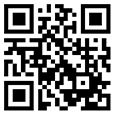0
新航道官方在线客服

阅读量:
■有关定语从句的概念
(1)定语从句:就是在复合句里充当定语的从句,它通常紧靠在所修饰的名词或代词后面。
(2)先行词:就是被定语从句修饰的名词或代词。
(3)关系词:引导定语从句的词叫关系词。关系词有关系代词who, whom, whose, which和that等;关系副词有when, where, why等。关系词不仅起连接作用,而且还代表先行词并在定语从句中担任某一句子成分,关系代词作主语、宾语、定语、表语等,关系副词作状语。如:
This is the book that my father bought me yesterday. 这就是我父亲昨天帮我买的那本书。
说明:句中修饰the book的that my father bought me yesterday就是定语从句;被定语从句所修饰的the book这是先行词;代表the book的关系代词that在定语从句中作bought的直接宾语。
The time when he arrives is not known. 他到达的时间还不知道。
说明:句中when he arrives是定语从句,被定语从句修饰的the time是先行词,关系副词when作时间状语。
■关系代词的一般用法
先行词是人,在从句中作主语用who,作宾语用whom或who,作定语用whose;先行词是物,在定语从句中作主语或宾语都用which,作定语用of which或whose均可。在限制性定语从句中which, who, whom都可用that代替。关系代词作宾语时常被省略。
This is the man who helped me yesterday. 这就是昨天帮助我的那个人。(作主语)
The teacher (who/whom/that) you want to see is coming. 你要见的老师来了。(作see的宾语,可以省略)
I met a boy whose father was a astronaut. 我认识一位男孩,他的父亲是宇航员。(作定语)
Here is the coat which/that will be made to you. 这是一件做给你的衣服。(作主语)
This is the factory (which/that) we visited last year.这就是我们去年参观的那家工厂。(作visited的宾语,可以省略)
He has a book whose cover (=the cover of which) is very beautiful. 他有一本封面非常漂亮的书。
■关系副词的一般用法
关系副词有when, where, why,在定语从句中作状语,分别表示时间、地点和原因。when的先行词通常是time, day, season, age, occasion等时间名词;where的先行词通常是place, city, town, village, house, case, situation, scenes等地点或情形名词;why的先行词只能是reason。关系副词when和where有时可用“介词+which”代替,why可用for which代替。如:
There are occasions when (=on which) one must yield. 任何人都有不得不屈服的时候。
Beijing is the place where (=in which) I was born. 北京是我的出生地。
Is this the reason why (=for which) he refused our offer? 这就是他拒绝我们帮助他的理由吗?
注意:先行词虽然是时间或地点,但若在定语从句中作主语或宾语时,要用关系代词。
(1)The factory where his father worked has closed. 他父亲曾工作的那家工厂关闭了。(作状语)
比较:The factory which/that was built in 1978 has closed. 1978年建的那家工厂关闭了。(作主语)
(2) I’ll never forget the days when we lived together. 我永远也忘不了我们一起生活的那些日子。(作状语)
比较:I’ll never forget the days (that) we spent in Australia. 我永远也忘不了我们在澳大利亚度过的那些日子。(作及物动词spent的宾语)
(3) The reason (why) she was ill was that she had eaten bad meat. 她生病的原因是她吃了变质的肉。(作状语,用关系副词)
比较:The reason (that) he gave for his absence was obviously fabricated.他所说的缺席理由显然是编造的。(作gave的宾语,用关系代词)
■习惯上要用that引导的定语从句
(1)当先行词是指物的all, little, few, much, any, anything, everything, nothing, none, the one时,或先行词被all, little, few, much, any, every, no等修饰时。
All that can be done has been done. 能做的都已经做了。
He will tell you everything that he heard about it.他将告诉你他所听到的关于这件事的一切。
There is little work that is fit for you. 没什么工作适合你做。
I have eaten all the food that is left. 我把剩下的所有食物都吃了。
(2)先行词是序数词或级形容词时,或者先行词被序数词(包括last, next)、级形容词及the only, the very 等修饰时。
This is the first film that I have seen since I came here.这是我到这里后所看的场电影。
This is the best that has been used against pollution. 这是用来防止污染的办法。
This is the very book that I am looking for. 这正是我一直在寻找的那本书。
(3)先行词包括人和物时(from www.nmet168.com)。
They often talk about the people and the things that they are interested in. 他们常常谈论那些他们感兴趣的人和事。
(4)当主句是以who或which开头的疑问句时,为了避免重复,多用that引导。如:
Which is the house that caught fire last night? 昨晚失火的是那座房子?
Who is the lady that is playing the piano? 在弹钢琴的那位小姐是谁?
■习惯上不用that引导的定语从句
(1)在非限制性定语从句中,不以能用that引导。
Yesterday I met Mary, who seemed very excided. 昨天我碰到了玛丽,她显得非常兴奋。
(2)直接在介词后作宾语时,不能用that引导,要用whom, whose或which,且不能省略。
The house in which we live is not large. 我们住院的房子不大。
I know the young man with whom you live. 我认识和你住在一起的那个年青人。
但当介词放在从句的末尾时,可以用that替代which, who替代whom,也可以省略关系代词。如:
The house (which/that) we live in is not large. 我们住院的房子不大。
I know the man (whom/who/that) you live with. 我认识和你住在一起的那个人。
(3)当先行词是指人的all, any, few, one(s), anyone, everyone, people 等时,多用 who。如:
None so blind as those who won't see. 睁眼不看事实的人眼最瞎。
Anyone who is over sixteen is allowed in. 任何超过十六岁的人都允许进去。
I met someone who said he knew you. 我碰到一个人,他说认识你。
He who has a mind to beat his dog will easily find his stick. (谚)欲加之罪,何患无辞。
(4)当先行词与关系代词之间有较复杂的短语或从句隔开时(from www.yygrammar.com)。
I was the only person in my office who was invited. 我是我们办公室里受到邀请的人。
A new master will come tomorrow who will teach you German. 有位新校长明天来,他将教你们德语。
